World Geography And Politics Daily News | 22 Jul 2023

Views (114)
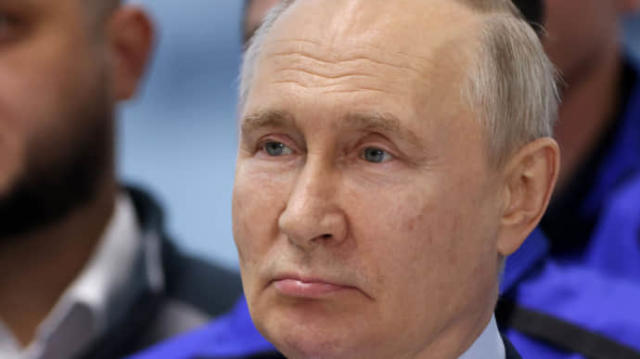
Russia arrests prominent military blogger critical of Putin
A prominent Russian military blogger, who has criticized Russian President Vladimir Putin and his military leaders for not fighting harder in Ukraine, was arrested in Moscow on Friday. Igor Girkin, also known as Igor Strelkov, was detained at his home on Friday morning and is facing extremism charges, according to his wife, Miroslava Reginskaya. He…
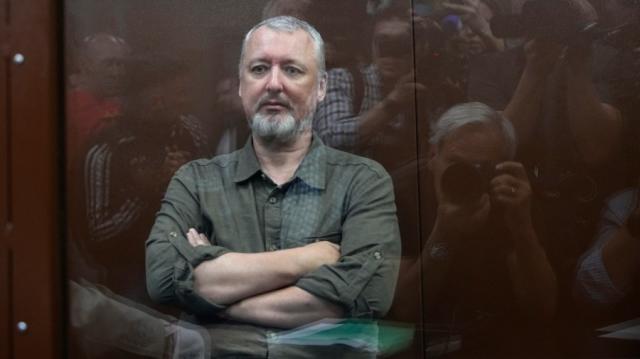
A prominent Russian military blogger, who has criticized Russian President Vladimir Putin and his military leaders for not fighting harder in Ukraine, was arrested in Moscow on Friday.
Igor Girkin, also known as Igor Strelkov, was detained at his home on Friday morning and is facing extremism charges, according to his wife, Miroslava Reginskaya. He appeared in a Moscow courtroom later on Friday.
The pro-war blogger had ratcheted up his criticism of Putin in recent days, calling the Russian leader a “lowlife” and “cowardly bum.”
“Now he is the last island of legitimacy and stability of the state,” he added. “But the country will not be able to withstand another six years of this cowardly bum in power.”
The Russian army veteran and former Federal Security Service (FSB) officer helped Moscow annex Crimea in 2014 and later organized separatist militias in eastern Ukraine.
He and two others were convicted by a Dutch court last November for their role in the downing of Malaysian Airlines Flight 17 over eastern Ukraine in 2014, which killed all 298 people on board.
Girkin’s arrest comes as Putin is seeking to restore order following a short-lived mutiny last month led by Wagner group founder Yevgeny Prigozhin, who has also been highly critical of how the Kremlin is prosecuting the war.
Burns added that Prigozhin’s mutiny has exposed Putin’s weaknesses and misjudgments.
“If and when the Ukrainians make further advances on the battlefield, I think what that’s going to do is cause more and more Russians in the elite and outside the elite to pay attention to Prigozhin’s critique of the war as well,” he added.
Russia comes under pressure at UN to avoid global food crisis and revive Ukrainian grain shipments
Russia came under pressure at the U.N. Security Council on Friday from its ally China and developing countries as well as Western nations to avert a global food crisis and quickly revive Ukrainian grain shipments. Moscow was also criticized by the U.N. and council members for attacking Ukrainian ports after pulling out of the year-old grain deal and destroying port infrastructure — a violation of international humanitarian law banning attacks on civilian infrastructure. In response to Russia declaring wide areas in the Black Sea dangerous for shipping, the U.N. warned that a military incident in the sea could have “catastrophic consequences.”
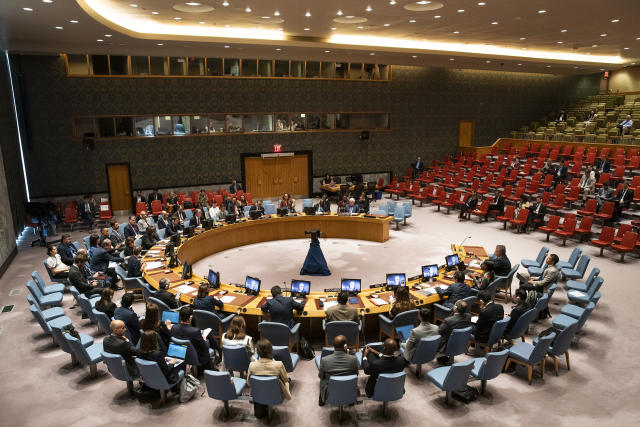
In response to Russia declaring wide areas in the Black Sea dangerous for shipping, the U.N. warned that a military incident in the sea could have “catastrophic consequences.”
China’s deputy U.N. ambassador Geng Shuang noted U.N. Secretary-General Antonio Guterres’ commitment to make every effort to ensure that both Ukrainian grain and Russian food and fertilizer get to world markets. He expressed hope that Russia and the U.N. will work together to resume exports from both countries “at an early date” in the interest of “maintaining international food security and alleviating the food crisis in developing countries in particular.”
U.S. Ambassador Linda Thomas-Greenfield accused Russia of using the Black Sea as “blackmail” and playing political games, pointing to Moscow’s export of more grain than ever before at higher prices. She called on the Security Council and all 193 U.N. member nations to come together and urge Russia to resume negotiations in good faith.
Several developing countries warned of the impact of the cutoff in Ukrainian grain shipments, which has already led to a rise in wheat prices.
Gabon’s U.N. Ambassador Michel Biang said the grain deal had avoided a spark in grain prices and calmed the risk of food insecurity in the drought-affected Horn of Africa and other regions. He urged talks “to break the current deadlock” and avoid a humanitarian crisis.
Mozambique’s U.N. Ambassador Pedro Afonso said Russia’s action is certain “to amplify global socio-economic stresses in a world already grappling with a perfect storm of conflict, climate change” and a loss of confidence in multilateral solutions.
Russia’s deputy U.N. ambassador Dmitry Polyansky said Russia stands ready to consider rejoining the deal if seven principles from the Russia-U.N. memorandum are implemented. He listed them as “the real not theoretical” lifting of Western sanctions on Russian grain and fertilizer exports, and the lifting of obstacles to Russian banks that service exports, including the immediate connection to the SWIFT global banking system.
Russia also wants the delivery of spare parts for agricultural production to resume, a resolution to issues related to chartering vessels for Russian exports including insurance, the war-damaged ammonia pipeline from Russia to Ukraine to be fixed and other fertilizer issues resolved, Russian assets linked to agricultural production unfrozen, and “the resumption of the initial humanitarian nature of the grain deal,” he said.
Under the deal, Ukraine was given a green light to ship grain from three Black Sea ports, but following Monday’s withdrawal Russia said it will consider a ship traveling to Ukrainian ports as being laden with weapons and will treat the country of its flag as a participant in the conflict on Kyiv’s side. Ukraine announced that it will also treat ships traveling to Russian Black Sea ports as military targets.
U.N. political chief Rosemary DiCarlo strongly condemned Russian attacks on Ukraine’s Black Sea ports and urged Moscow to stop them immediately. She said threats to target civilian vessels “are unacceptable” and warned that sea mines can endanger civilian navigation.
“We strongly urge restraint from any further rhetoric or action that could deteriorate the already dangerous situation,” she said. “Any risk of conflict spillover as a result of a military incident in the Black Sea – whether intentional or by accident – must be avoided at all costs, as this could result in potentially catastrophic consequences to us all.”
China’s Geng called on the parties “to remain calm and exercise restraint,” abide by international humanitarian law and refrain from attacking civilian infrastructure, “and make every effort to curb the expansion of the conflict to prevent a larger scale humanitarian crisis.”
U.N. humanitarian chief Martin Griffiths told the council that a record 362 million people in 69 countries need assistance, “a number that has never been reached anywhere before,” requiring an unprecedented $55 billion. He said the cutoff of Ukrainian grain shipments has already brought not only killings and injuries to civilians and damage to port infrastructure but a 9% spike in wheat prices on Wednesday, the largest since Russia’s February 2022 invasion of Ukraine.
The “humanitarian catastrophe” in Ukraine continues to reverberate around the world, Griffiths said, and for many of the 362 people who need help, a cutoff in critical Ukrainian and Russian grain threatens the future of their families. “Some will go hungry, some will starve, many may die as a result of these decisions,” he said.
Hops for beer flourish under solar panels. They're not the only crop thriving in the shade.
The pilot project — a collaboration between Wimmer and local solar technology company Hallertauer Handelshaus — was set up in the fall of last year. The electricity made at this farm can power around 250 households, and the hops get shade they'll need more often as climate change turbocharges summer heat.
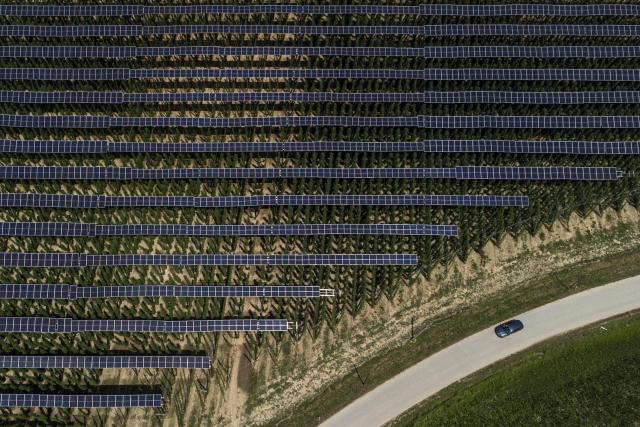
AU in der HALLERTAU, Germany (AP) — Bright green vines snake upwards 20 feet (six meters) toward an umbrella of solar panels at Josef Wimmer’s farm in Bavaria.
He grows hops, used to make beer, and in recent years has also been generating electricity, with solar panels sprawled across 1.3 hectares (32 acres) of his land in the small hop-making town of Au in der Hallertau, an hour north of Munich in southern Germany.
Beer-making hops can suffer if exposed to too much sun, said Bernhard Gruber, who's managing the project's solar component — and since there were already solar installations on the farm, it made sense to give them a second purpose by mounting them on poles above the crops.
In addition to shielding plants from solar stress, the shade could mean “water from precipitation lasts longer, leaving more in the soil” and that “the hops stay healthier and are less susceptible to diseases,” Gruber said. A scientific analysis of the benefits for the plants will be concluded in October.
The farm is working with researchers to understand how to get the balance right, so the hops get enough shade and sunlight for the best harvests each year.
“You can get your renewables from the land that you do have covered and you don’t need to do these massive solar arrays on good agricultural land, which is what you’ve tended to see around to date," said Elinor Thompson, a reader at Greenwich University who’s leading the research.
Thompson, a plant biologist, and her team are working with a fruit farm in Kent in southern England to make sure the plants also get the best out of solar structures.
“Nobody can afford to lose crop, especially in current conditions,” she said. “We are assuming that British summers are going to get hotter, we have a problem with water shortages, we need to be efficient in all parts of agriculture.”
Having shade where it's useful and monitoring the effects of different arrangements of solar panels on a variety of crops will help the world prepare for a more climate-variable future, Thompson said.
Randle-Boggis said the systems can be used for “climate change resilience and a way of improving the growing environment for crops, while also providing low carbon electricity.” He said that some of the crops under the partial shade of solar panels are using around 16% less irrigation.
The solar-covered farms saw increased yields for maize, Swiss chard and beans, and while growers experienced lower yields for onions and sweet peppers, they still had the added benefit of clean electricity generation.
But crop yields can also “vary depending on the weather conditions because we’re seeing the climate changing,” said Randle-Boggis, although he added he was “really surprised and impressed with some of the results that we’re seeing” for solar-covered crops.
“Maize is grown by about 50% of farmers in Tanzania. Maize is also a sun loving plant. So the fact that we had an 11% yield increase in maize ... is a phenomenal result,” he said.
And Randle-Boggis said these projects can continue to be replicated around the world for many different crops, as long as systems are “designed with the local context in mind.”
A future with more crops under solar is Gruber's hope for beer-making hops, too.
“At the end of the year we will set up another solar park over hops,” which will have about 10 times the electricity-generating potential as the current project, Gruber said.
But that's still just the beginning.
“We're getting lots of inquires from hop farmers," he said, "even from abroad.”
___
Beltaji reported from London.
___
Putin raising stakes with grain blackmail
Putin cannot be provoked because he provokes both himself and the West. Constantly responding to these provocations after the fact is a fragile position, which leads to the aggressor's appetite for more.
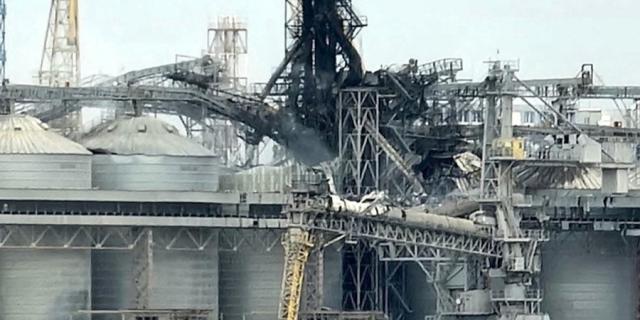
Putin cannot be provoked because he provokes both himself and the West. Constantly responding to these provocations after the fact is a fragile position, which leads to the aggressor's appetite for more.
There has never been a case when a moderate reaction to a particular provocation on Putin's part would lead to his coming to his senses. There has always been an increase in "wants." Therefore, it is not appropriate to react with too much concern over crossing the “red lines.” The West must set the red lines itself; otherwise, it will look like the United States lacks parity in terms of nuclear weapons. That is, the United States is being pressured, and it is bending. This is what Putin is feeling right now. And that's why he continues provocations along all lines.
What do we see now with the grain deal? Naturally, Putin needs this mechanism to create an image of Russia as the breadwinner of the Global South, that it is fighting for the hungry, and that it cares about these issues. But on the other hand, the Kremlin is well aware that if Ukraine uses this mechanism, it will not benefit them. So, they are trying to keep this mechanism in reserve without completely destroying it.
Implementing a grain deal is a particular process. It includes the shipment of grain from Ukraine, transportation of this grain by sea, and unloading in Turkey. These are the three mandatory links. Based on this agreement, Putin expected one of the links to be broken. But seeing that Erdogan is behaving somehow "disrespectfully" towards him (giving permission for Sweden to join NATO, giving Ukraine the commanders of Azov, generally declaring support for Zelensky, whom Putin does not want to see in person, providing permission to France to inspect the nuclear power plant that Russia is building in Turkey, and generally wanting to join the EU himself), Putin is well aware that this whole thing could end up in the organization of convoys. Of course, convoys not involving Turkey alone, but with the participation of the coastal NATO member states. Then, he decides to exclude the first element from this chain - the shipment. That's why there were attacks on the terminals in the port of Odesa.
Read also:
If we manage to agree on the movement of these vessels through the waters of coastal countries, Putin has a sneaky answer for this option as well. That is, he may use the same attack watercraft against them, while at the same time raising elements of Ukrainian watercraft from the bottom near the destroyed span of the Crimean bridge, and thus blame Ukraine.
I started with this principle: do not make concessions to Putin.
How to counteract these insidious plans? Any concession to Putin is a continuation of his expansion. We just need to keep pushing him. We need to provide Ukraine with air defense equipment - more of it - so that we can cover not only the front line and not only Kyiv and the nuclear power plants, but if we consider this grain deal necessary, we need to cover port terminals. That is, Odesa.
Ideally, such a layered air defense system would cover the entire territory of Ukraine. But since neither we nor our allies have the strength to do so, protecting the most critical facilities is necessary.
There are two ways to counteract this. The first is to kill Putin, and the second is to defend ourselves against him. I don't see any other options.
How to cover the ports? With coastal defense systems like our Neptune, which can hit not only maritime targets (our only maritime target is the Russian Black Sea Fleet) but also land targets, such as the Crimean Bridge. In any case, we are talking about long-range land-based missiles or similar air-launched missiles. Then we need aviation not only to take wing and launch these missiles, but also to intercept them. And for this, we require either Western avionics on our aircraft or, even better, Western aircraft with appropriate avionics. If the West claims the offensive is slow, they are making claims about themselves, not us.
A lot depends on Erdogan now. He will now step up his own game. For example, on the issue of organizing convoys. Erdogan will say that Turkey will not go it alone. Let's do it together with NATO forces. And to do this with NATO forces, the Bosporus must be opened. After that, he will make another "unobtrusive offer," saying, "Give me in return accession to the EU, for example, or permit me to buy F-35 fighter jets. Erdogan is a skillful player. What cards he will play (we can, in principle, consider all the cards), but how he will play them depends on his personal talents.
Erdogan can play the same way with Putin on the same grain deal. Many people see the grain deal as an initiative of Erdogan to provide grain to the Islamic world and the Global South. Then Putin violates this agreement. Erdogan may not remain silent, but say: gentlemen (from Sudan, Mali, and other countries), you really need to look at who is playing against you. Russia is destroying you. This is what Putin is afraid of. He will lose a great deal of support in the UN General Assembly. He will lose support at the BRICS summit and support in the SCO. Putin is afraid of this, and Erdogan can play on this. He can play on it seriously.
That is why the situation in the Black Sea region can unfold quite rapidly. The further Putin raises the stakes, the more he will get hit on the nose. Because many politicians, as they say, have lost their patience.
UN expert decries 'mass arbitrary detention' of children in Syria
A United Nations expert voiced concern on Friday that tens of thousands of children were being detained arbitrarily in northeastern Syria based on their alleged ties to Islamic State and in violation of international law. Fionnuala Ni Aolain, a U.N. Special Rapporteur, said a day after returning from the region that she was also concerned about the "snatching" of hundreds of boys from camps. Thousands of internal refugees and families of suspected IS fighters including Syrians, Iraqis and other
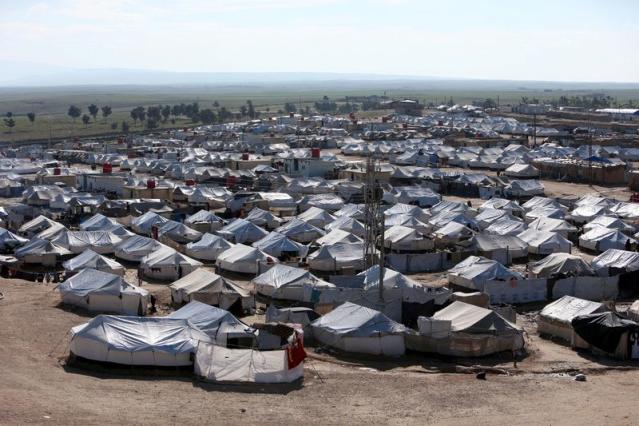
GENEVA (Reuters) - A United Nations expert voiced concern on Friday that tens of thousands of children were being detained arbitrarily in northeastern Syria based on their alleged ties to Islamic State and in violation of international law.
Fionnuala Ni Aolain, a U.N. Special Rapporteur, said a day after returning from the region that she was also concerned about the "snatching" of hundreds of boys from camps.
Thousands of internal refugees and families of suspected IS fighters including Syrians, Iraqis and other nationals are housed in detention camps across the region after fleeing from jihadist-held areas during the Syria conflict.
"The thing I will say that concerned me the most and my team the most as we visited northeast Syria was the mass indefinite and arbitrary detention of children, particularly boys in various types of facilities," she said.
Their detention in camps, prisons and centres was "premised on the alleged threat that they pose to security based on their or their parents' alleged prior links with Daesh," she added, using a synonym for IS.
Ni Aolain was speaking the day after what she says was the first visit to the region by a U.N. human rights expert.
Among the places she visited was the Kurdish-run al-Hol camp, which holds around 55,000 people including 31,000 children. It also contains third-party nationals from Western countries despite U.N. pressure to take them back.
The northeast of Syria including al-Hol falls under the control of the Syrian Democratic Forces (SDF), a U.S.-backed group. An official from the SDF-affiliated authorities that run the region did not immediately respond to a request for comment.
SDF officials regularly call on foreign countries to repatriate families of Islamic State militants in the camps.
Ni Aolain described conditions at al-Hol as "dire and extreme," saying the temperature was 50 Celsius during her visit. The term "camp" is inappropriate, she said, since people are not free to come and go.
"There appears to be no understanding that it is in absolute contravention of international law, to detain children in what appears to be an unending cycle of cradle-to-grave detention," she said. She also raised concerns about the separation of hundreds of adolescent boys from their mothers in camps based on the alleged security risk they posed. She did not say where they went but has previously said they went to unknown locations.
"Every single woman I spoke to made clear that it was the snatching of children that provided the most anxiety, the most suffering, the most psychological harm," she said. "The rationale for taking these boys simply does not stand up to scrutiny."
In February, U.N. rights experts expressed grave concern about reports that at least 10 boys were taken away from another camp, Roj, by the authorities in northeastern Syria.
They said there was a pattern of forcibly removing boys who reach the ages of 10 or 12 from the camps and separating them from their mothers and taking them to unknown locations, calling this completely unlawful.
The SDF-affiliated autonomous administration said in a statement at the time the report was "far from the truth."
It said the camps' administration from time to time removed adolescents because they were at the age at which they were at the highest risk of being influenced by extremism, saying they were put in "rehabilitation centres".
(Reporting by Emma Farge in Geneva; Editing by Tom Perry and Matthew Lewis)
South African authorities agree to issue arrest warrant for Putin
On 21 July, the government of South Africa admitted that it had not fulfilled its international obligations, refusing to immediately issue an arrest warrant for Russian President Vladimir Putin if he entered the country.
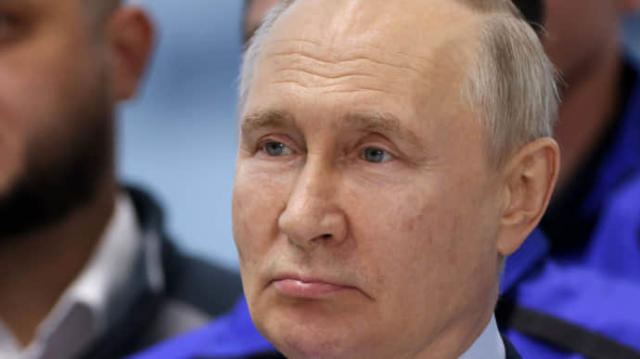
On 21 July, the government of South Africa admitted that it had not fulfilled its international obligations, refusing to immediately issue an arrest warrant for Russian President Vladimir Putin if he entered the country.
Details: Back in May, the South African Ministry of Justice had received a warrant from the International Criminal Court and, as it has now admitted, should have immediately applied to the prosecutor's office for a national warrant for Putin's arrest. Instead, they opted to initiate a consultation procedure with the court in The Hague.
At this time, South African and Russian officials publicly stated that Putin could come to the BRICS summit in South Africa despite the ICC warrant (and South Africa is a party to the court and is obliged to comply with it).
In this regard, the opposition Democratic Alliance party went to court to oblige the authorities to apply for a warrant for Putin's arrest.
On Friday, the court confirmed that the South African authorities did apply to the prosecutor's office for a warrant. This means that now the President of Russia will be arrested if he decides to come to South Africa.
The Democratic Alliance, commenting on the message published by the Gauteng court, said that it was public pressure that contributed to the fulfilment by the South African authorities of their obligations under the Rome Statute.
Earlier: It was revealed that "by mutual agreement", the Russian president decided not to go to the BRICS summit in the Republic of South Africa, where he should have been arrested on the warrant of the International Criminal Court.
Last week, information appeared that South Africa asked Russia to send Lavrov instead of Putin, but was denied.
0 Likes
